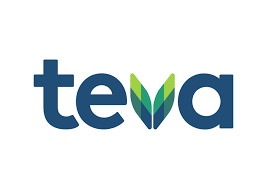- Bone Health
- Immunology
- Hematology
- Respiratory
- Dermatology
- Diabetes
- Gastroenterology
- Neurology
- Oncology
- Ophthalmology
- Rare Disease
- Rheumatology
Biosimilars Roundup: New Ranibizumab Partnership, Organon Joins Biosimilars Forum, Oncology Educational Materials
Teva and Bioeq partner on ranibizumab, Organon joins the Biosimilars Forum, and the Alliance for Patient Access issues educational material for oncology biosimilars.
Teva Pharmaceutical Industries and Bioeq said they would work together to market the ranibizumab biosimilar candidate (FYB201) in Europe, Canada, Israel, and New Zealand. The proposed agent references Lucentis for macular degeneration.
FYB201 was originally developed by Formycon, which contracted with Bioeq for the submission of regulatory approval filings in the United States and European Union. “Bioeq will be responsible for the development, registration and supply of the biosimilar, while Teva will be responsible for commercializing the product,” the companies said in a statement. Formycon and Bioeq had hoped for a US launch in 2021.
In clinical results published in May 2021, investigators concluded that FYB201 met the primary end point for efficacy and ocular and systemic safety in a trial of FYB201 vs reference ranibizumab in patients with treatment-naive, subfoveal choroidal neovascularization caused by neovascular age-related macular degeneration.
Primary end points were improvements in best-corrected visual acuity (BCVA) by Early Treatment Diabetic Retinopathy Study (ETDRS) letters. Patients were randomized equally to FYB201 or reference ranibizumab. BCVA improved by a mean of +5.1 and +5.6 ETDRS letters by week 8 for the ranibizumab candidate vs reference groups, respectively.
Biosimilars Overview for Oncologists, Patients
A short paper from the Alliance for Patient Access (APA) provides a clear and simple overview of biosimilars from the perspective of oncologists explaining why these agents make sense for patients and how they can improve access to health care.
The APA is a collective of health care providers from diverse practice specialties who advocate for clinical decision support, restraints on health care management policies by payers, and respect for individual health care needs.
Their new paper serves as a tutorial that could be shared with health care practitioners or patients to educate about biosimilars. “Biosimilars stand to benefit both physicians and patients. More treatments mean more opportunities to tailor care,” says a section on biosimilars for support of patient-centered care.
The paper also addresses the importance of physician confidence in biosimilars. “Ongoing real-world data also must be collected and relayed to physicians regularly,” the authors write.
The issues inherent in switching patients to biosimilars also are addressed. “It should not be discounted, particularly in the case of a lengthy battle with cancer, that patients also may have an emotional attachment to medication that’s working for them and not want to change,” the authors write.
Nonmedical switching often presents extra administrative burdens, they note. “Physicians and patients who want to challenge the insurer-directed switch must fill out forms, send letters, and make calls. Patients may need to sign a new consent form with the clinic for the change in treatment, which could undermine patient confidence and possibly create a perception of increased risk.”
The authors conclude, however, that biosimilars offer more treatment options, especially more individualized care, and potential for savings and improved allocation of health care resources.
Organon Joins Biosimilars Forum
Organon, a Merck biosimilars spinoff company, has joined the Biosimilars Forum, which is a consortium of biosimilars companies. Organon does not develop biosimilars. Rather, it contracts with established biosimilars companies that have completed biosimilar development and manages the sales of these products.
“While the policy environment for biosimilars is improving, we know there is a long way to go toward increased access to biosimilars,” Organon said about its decision to join the Biosimilars Forum. Payers are starting to give biosimilars preferred status. Cigna in June 2021 announced that it was placing 2 infliximab biosimilars, Avsola and Inflectra, on preferred formulary to incentivize use of these products. The pharmacy benefit manager also said it would initiate a $500 payment to patients who switched to biosimilars. That payment would come in the form of a health care debit card.
Organon will market Renflexis, an infliximab biosimilar, Ontruzant (trastuzumab), Aybintio (bevacizumab), and Hadlima (adalimumab). The company also plans to market the etanercept biosimilar Brenzys.
The Biosimilars Forum includes Biogen, Boehringer Ingelheim, Coherus BioSciences, Pfizer, Samsung Bioepis, Sandoz, Teva, and Viatris. Merck also has been a member, although Merck announced at the time of the Organon spinoff that it was exiting from biosimilars activity.
Newsletter
Where clinical, regulatory, and economic perspectives converge—sign up for Center for Biosimilars® emails to get expert insights on emerging treatment paradigms, biosimilar policy, and real-world outcomes that shape patient care.




